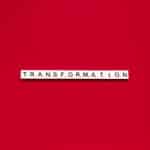A striking physique, the ripples of muscle mass, the display of unparalleled strength and endurance – that’s the dazzling world of bodybuilding that amazes us. However, behind the curtain, every bodybuilder knows the commitment it demands. Aside from the brutal training routine they endure, a critical factor that ensures their success is disciplined nutrition. As you are probably aware, the post-competition phase is a crucial time for bodybuilders to focus on recovery. The right nutritional strategy can help replenish energy, repair muscle tissues, and prepare the body for the next cycle of training and competition. So how should you plan your post-contest diet? Let’s delve into the science of nutrition for bodybuilders and explore the best ways to recover.
Understanding the Impact of Bodybuilding on the Athlete’s Body
Bodybuilding is a sport that requires intense physical training and stringent control of diet. The pursuit of the ideal physique involves gaining muscle mass while minimizing body fat. As a result, bodybuilders often subject their bodies to intense exercise regimes and carefully controlled diets – a lifestyle that can take a toll on their bodies post-contest.
Topic to read : How Can Wearable Tech Optimize Load Management in Professional Cricket Bowlers?
Bodybuilding competitions usually involve dehydrating the body and drastically reducing carbohydrate and fat intake in the final days. This practice, known as "peak week," aims to maximize muscle definition for the competition day. However, it can also lead to fatigue, muscle damage, and nutrient deficiencies. Therefore, post-competition recovery is crucial to restore the body’s energy reserves, repair muscle damage, and replenish nutrients.
Importance of Protein for Muscle Recovery
Post-competition, your bodies are primed for recovery and growth. This is where protein comes into play. Protein is a crucial nutrient for bodybuilders as it supplies the amino acids necessary for muscle repair and growth. Following a competition, the intake of protein should be a priority.
Have you seen this : What Are the Key Factors in Mental Resilience Training for Endurance Mountain Bikers?
Research suggests that a protein intake of about 1.6-2.2 grams per kilogram of body weight per day can promote muscle recovery and growth in athletes engaged in resistance training. Additionally, consuming protein before sleep can provide a prolonged supply of amino acids, further supporting overnight muscle recovery.
Remember to choose high-quality protein sources such as lean meats, fish, eggs, dairy products, and legumes. For vegan bodybuilders, plant-based protein sources like lentils, chickpeas, tofu, and tempeh can be an excellent choice.
Rehydration and Electrolyte Balance
Dehydration is a common practice before bodybuilding competitions to enhance muscle definition. However, it can lead to water and electrolyte imbalance in the body, impairing muscle function and recovery. Therefore, rehydration post-competition is vital.
Post-competition, start replenishing your body’s water reserves gradually. Excessive water intake can lead to water intoxication. Hence, it’s recommended to consume water with electrolytes to restore electrolyte balance. Sports drinks, coconut water, and electrolyte-enhanced water can be beneficial in this regard.
The Role of Carbohydrates and Fats in Energy Recovery
Post-competition, your bodies will be in a state of energy deficit due to the reduced intake of carbohydrates and fats during the peak week. To restore energy balance and support muscle recovery, it’s essential to replenish glycogen stores.
Carbohydrates are the primary source of energy for muscles. Consuming a diet rich in carbohydrates can replenish glycogen stores and provide the energy needed for muscle recovery. The American Dietetic Association recommends a carbohydrate intake of 6-10 grams per kilogram of body weight per day for athletes involved in intense training.
Fats should not be neglected either. They serve as an energy reserve, contribute to the absorption of fat-soluble vitamins, and are necessary for hormone production. Including healthy fats such as avocados, oily fish, nuts, and seeds in your diet can help restore energy balance and support overall health.
Monitoring Weight and Adjusting Diet Accordingly
Weight gain is a common concern for bodybuilders post-competition. The sudden increase in calorie intake, reduced exercise intensity, and the body’s tendency to store excess energy as fat can lead to weight gain. However, with careful monitoring and adjusting of your diet, you can control weight gain while supporting recovery.
Regularly monitor your weight and body composition. If you notice excessive weight gain, consider reducing your calorie intake by decreasing portion sizes or choosing lower-calorie alternatives. On the other hand, if you’re losing weight or muscle mass, increase your calorie intake to support recovery and growth.
In conclusion, the best nutritional strategy for post-competition recovery in bodybuilding involves a balanced intake of protein, carbohydrates, and fats, adequate hydration, and careful monitoring of weight and body composition. Remember, each body is unique – listen to your body, adjust your diet accordingly, and consult a nutritionist or dietitian if necessary.
Incorporating Resistance Exercise to Aid Recovery
After a grueling competition, the body needs time to rest and repair. But it doesn’t mean you should completely stop resistance training. Instead, a light and structured workout routine can aid recovery and minimize muscle loss. Resistance training is a crucial component of a bodybuilder’s routine, both pre-contest and post-contest.
Following the contest, the intensity of your workout regime should be lowered, but it should not be negated entirely. Regular resistance training can stimulate muscle protein synthesis, which in turn, aids muscle recovery and growth. While your muscles are soaked in a rich post-workout cocktail of proteins and carbohydrates, a light workout can guide these nutrients toward muscle repair and growth.
Remember, the key here is to avoid overdoing it. Excessive training can lead to overtraining syndrome, characterized by decreased performance, increased risk of injuries, and impaired recovery. Keep your post-contest workouts light, focusing more on technique and less on the weight.
Furthermore, incorporating stretching and flexibility exercises can help enhance circulation, relieve muscle tension, and expedite recovery. Yoga, Pilates, and tai chi are excellent options that can improve flexibility and promote a sense of well-being, assisting in your recovery process.
The Importance of Rest and Sleep in Recovery
Never underestimate the power of a good night’s sleep. Rest and sleep play a critical role in athletic recovery, yet they are often overlooked. Getting adequate sleep is like hitting the reset button on your body, allowing it to repair and rebuild muscle tissues, replenish energy stores, and balance hormones.
Rest and sleep are particularly vital for bodybuilders. Intense training and competition can stress the body and mind. Meanwhile, sleep can help reduce this stress by lowering cortisol, a stress hormone, and increasing growth hormone, which aids in muscle repair and growth.
Moreover, sleep deprivation can impair glycogen synthesis, reduce energy availability, and lead to weight gain – all detrimental to bodybuilders. Therefore, ensure you get quality sleep. Create a sleep-friendly environment, stick to a regular sleep schedule, and avoid caffeine and electronics before bedtime.
In conclusion, the best nutritional strategy for recovery in bodybuilding post-competition is multi-faceted. It involves not just a balanced diet but also an optimal workout routine, adequate rest, and sleep. Remember, your body is unique, so listen to its signals and adjust your routine accordingly. And don’t shy away from seeking professional help if necessary. As the saying goes, "Rome wasn’t built in a day," and neither is your dream physique. So, take your time, be patient, and keep pushing forward. You’ve got this!






